Notch2 (PT0367R) PT® Rabbit mAb
- 货号:YM8219
- 应用:WB;IHC;IF;IP;ELISA
- 种属:Human; Mouse; Rat;
- 靶点:
- Notch 2
- 简介:
- >>Endocrine resistance;>>Notch signaling pathway;>>Th1 and Th2 cell differentiation;>>Thyroid hormone signaling pathway;>>Human papillomavirus infection;>>Pathways in cancer;>>MicroRNAs in cancer;>>Chemical carcinogenesis - receptor activation;>>Breast cancer
- 基因名称:
- NOTCH2
- 蛋白名称:
- Neurogenic locus notch homolog protein 2
- Human Gene Id:
- 4853
- Human Swiss Prot No:
- Q04721
- Mouse Gene Id:
- 18129
- Mouse Swiss Prot No:
- O35516
- Rat Gene Id:
- 29492
- Rat Swiss Prot No:
- Q9QW30
- 特异性:
- endogenous
- 组成:
- PBS, 50% glycerol, 0.05% Proclin 300, 0.05%BSA
- 来源:
- Monoclonal, rabbit, IgG, Kappa
- 稀释:
- IHC 1:100-1:1000;WB 1:1000-1:5000;IF 1:200-1:1000;ELISA 1:5000-1:20000;IP 1:50-1:200;
- 纯化工艺:
- Protein A
- 储存:
- -15°C to -25°C/1 year(Do not lower than -25°C)
- 其他名称:
- NOTCH2;Neurogenic locus notch homolog protein 2;Notch 2;hN2
- 分子量:
- 265kD
- 实测条带:
- 120kD
- 背景:
- notch 2(NOTCH2) Homo sapiens This gene encodes a member of the Notch family. Members of this Type 1 transmembrane protein family share structural characteristics including an extracellular domain consisting of multiple epidermal growth factor-like (EGF) repeats, and an intracellular domain consisting of multiple, different domain types. Notch family members play a role in a variety of developmental processes by controlling cell fate decisions. The Notch signaling network is an evolutionarily conserved intercellular signaling pathway which regulates interactions between physically adjacent cells. In Drosophilia, notch interaction with its cell-bound ligands (delta, serrate) establishes an intercellular signaling pathway that plays a key role in development. Homologues of the notch-ligands have also been identified in human, but precise interactions between these ligands and the human notch homologues remain to be determined. This protein is cle
- 功能:
- disease:Defects in NOTCH2 are the cause of Alagille syndrome type 2 (ALGS2) [MIM:610205]. Alagille syndrome is an autosomal dominant multisystem disorder defined clinically by hepatic bile duct paucity and cholestasis in association with cardiac, skeletal, and ophthalmologic manifestations. There are characteristic facial features and less frequent clinical involvement of the renal and vascular systems.,function:Functions as a receptor for membrane-bound ligands Jagged1, Jagged2 and Delta1 to regulate cell-fate determination. Upon ligand activation through the released notch intracellular domain (NICD) it forms a transcriptional activator complex with RBP-J kappa and activates genes of the enhancer of split locus. Affects the implementation of differentiation, proliferation and apoptotic programs.,PTM:Phosphorylated.,PTM:Synthesized in the endoplasmic reticulum as an inactive form which
- 细胞定位:
- Cytoplasm, Membrane
- 组织表达:
- Expressed in the brain, heart, kidney, lung, skeletal muscle and liver. Ubiquitously expressed in the embryo.
- June 19-2018
- WESTERN IMMUNOBLOTTING PROTOCOL
- June 19-2018
- IMMUNOHISTOCHEMISTRY-PARAFFIN PROTOCOL
- June 19-2018
- IMMUNOFLUORESCENCE PROTOCOL
- September 08-2020
- FLOW-CYTOMEYRT-PROTOCOL
- May 20-2022
- Cell-Based ELISA│解您多样本WB检测之困扰
- July 13-2018
- CELL-BASED-ELISA-PROTOCOL-FOR-ACETYL-PROTEIN
- July 13-2018
- CELL-BASED-ELISA-PROTOCOL-FOR-PHOSPHO-PROTEIN
- July 13-2018
- Antibody-FAQs
- 产品图片
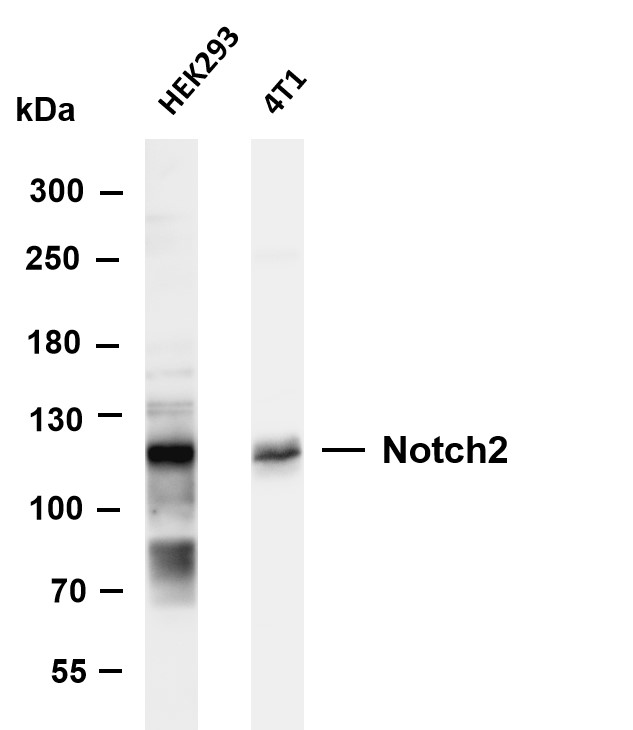
- Various whole cell lysates were separated by 4-8% SDS-PAGE, and the membrane was blotted with anti-Notch2 (PT0367R) antibody. The HRP-conjugated Goat anti-Rabbit IgG(H + L) antibody was used to detect the antibody. Lane 1: HEK293 Lane 2: 4T1 Predicted band size: 265kDa Observed band size: 120kDa
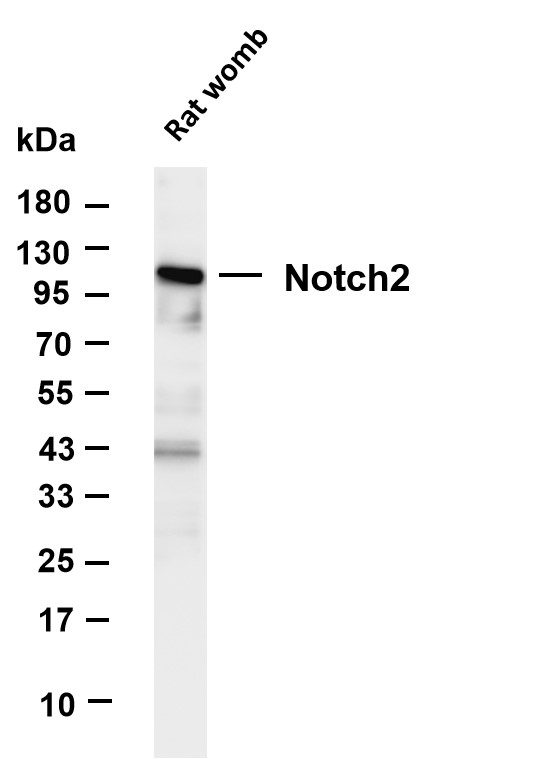
- Various whole cell lysates were separated by 4-20% SDS-PAGE, and the membrane was blotted with anti-Notch2 (PT0367R) antibody. The HRP-conjugated Goat anti-Rabbit IgG(H + L) antibody was used to detect the antibody. Lane 1: Rat womb Predicted band size: 265kDa Observed band size: 120kDa
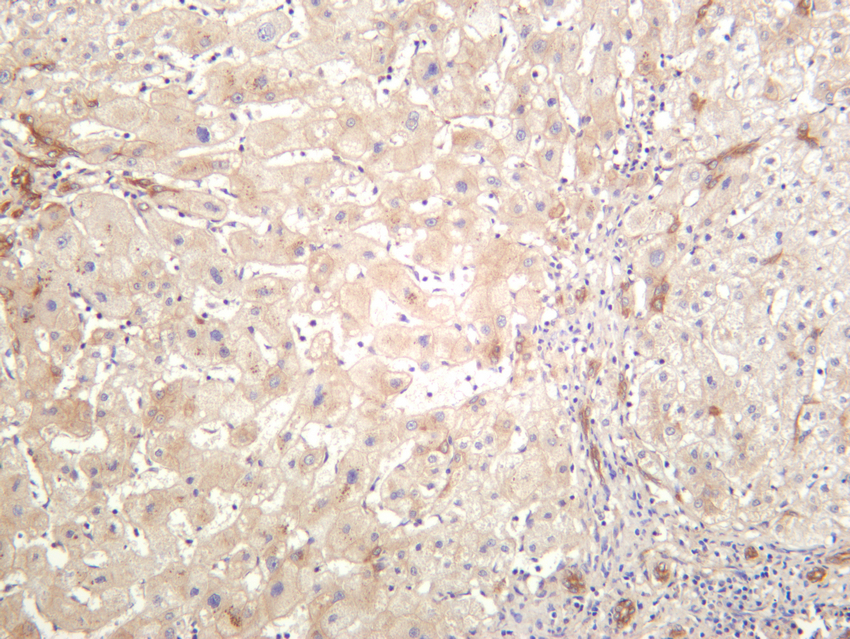
- Human liver was stained with anti-Notch2 (PT0367R) rabbit antibody
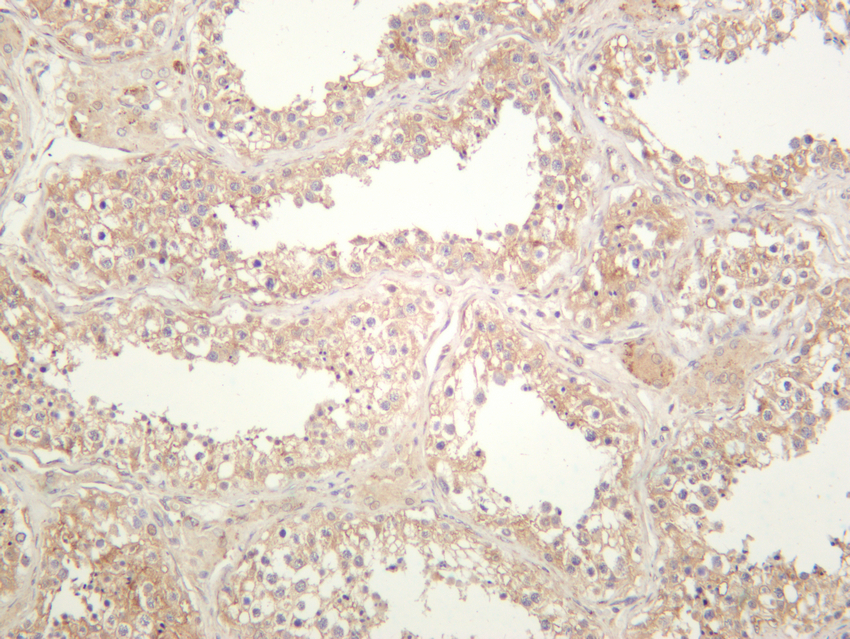
- Human testis was stained with anti-Notch2 (PT0367R) rabbit antibody
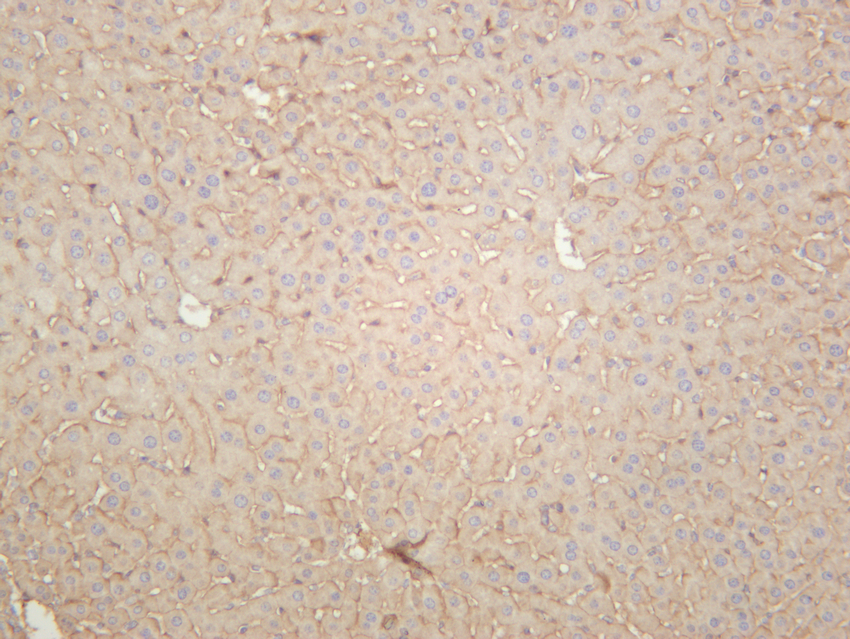
- Mouse liver was stained with anti-Notch2 (PT0367R) rabbit antibody
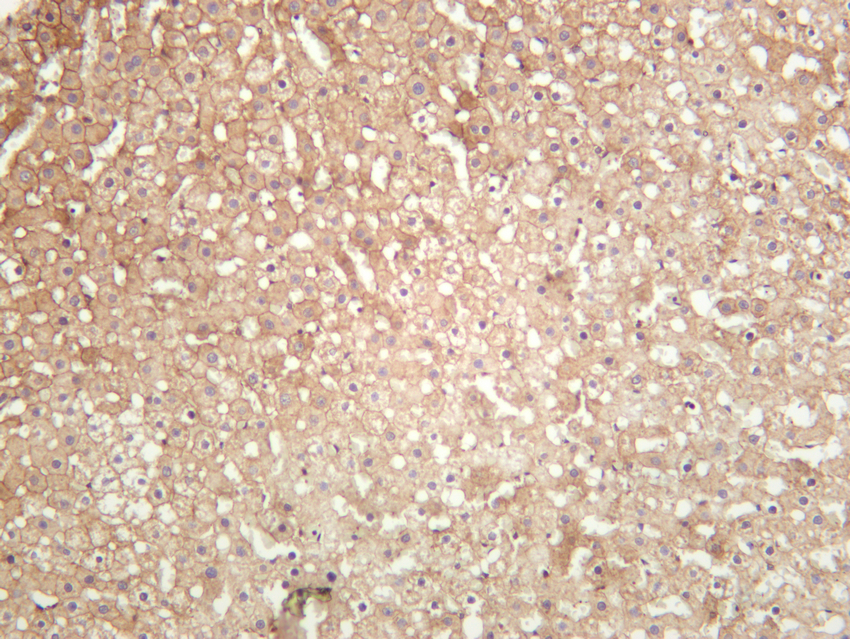
- Rat liver was stained with anti-Notch2 (PT0367R) rabbit antibody



